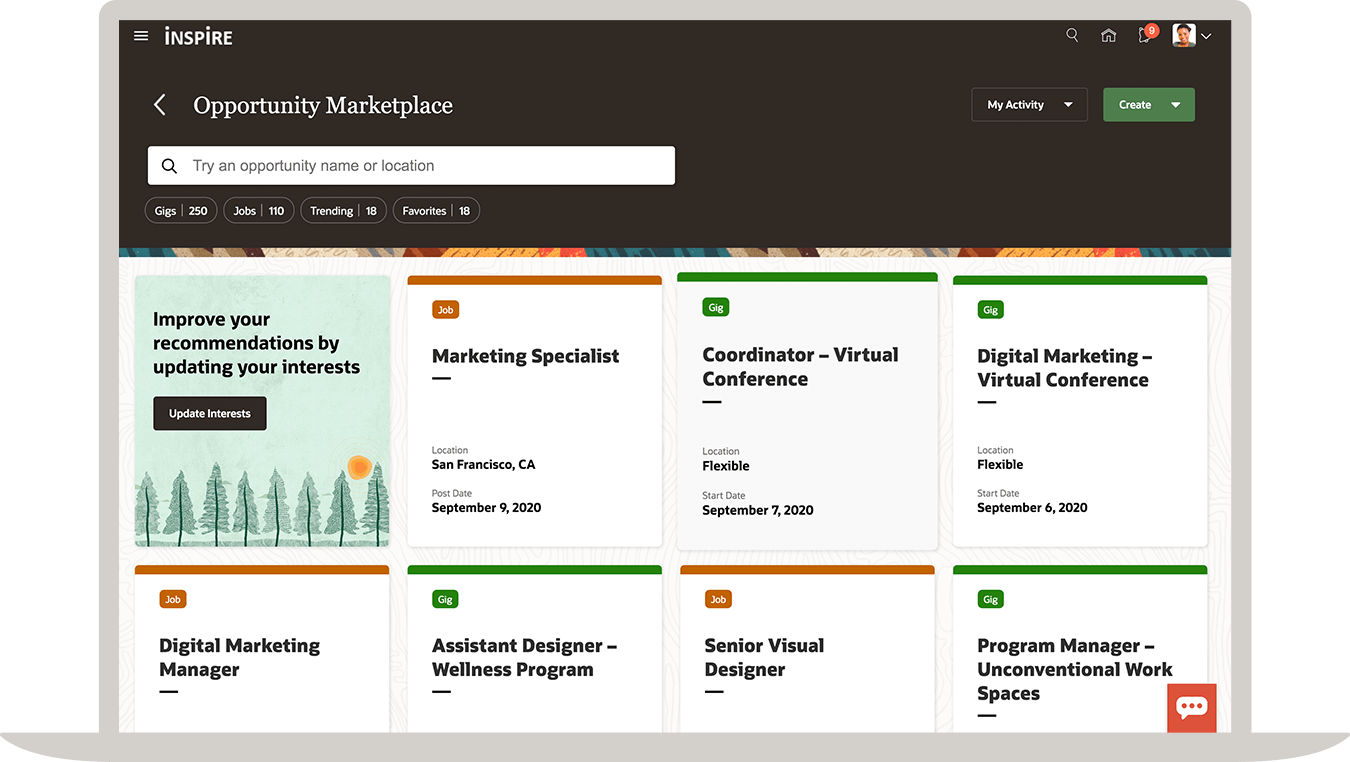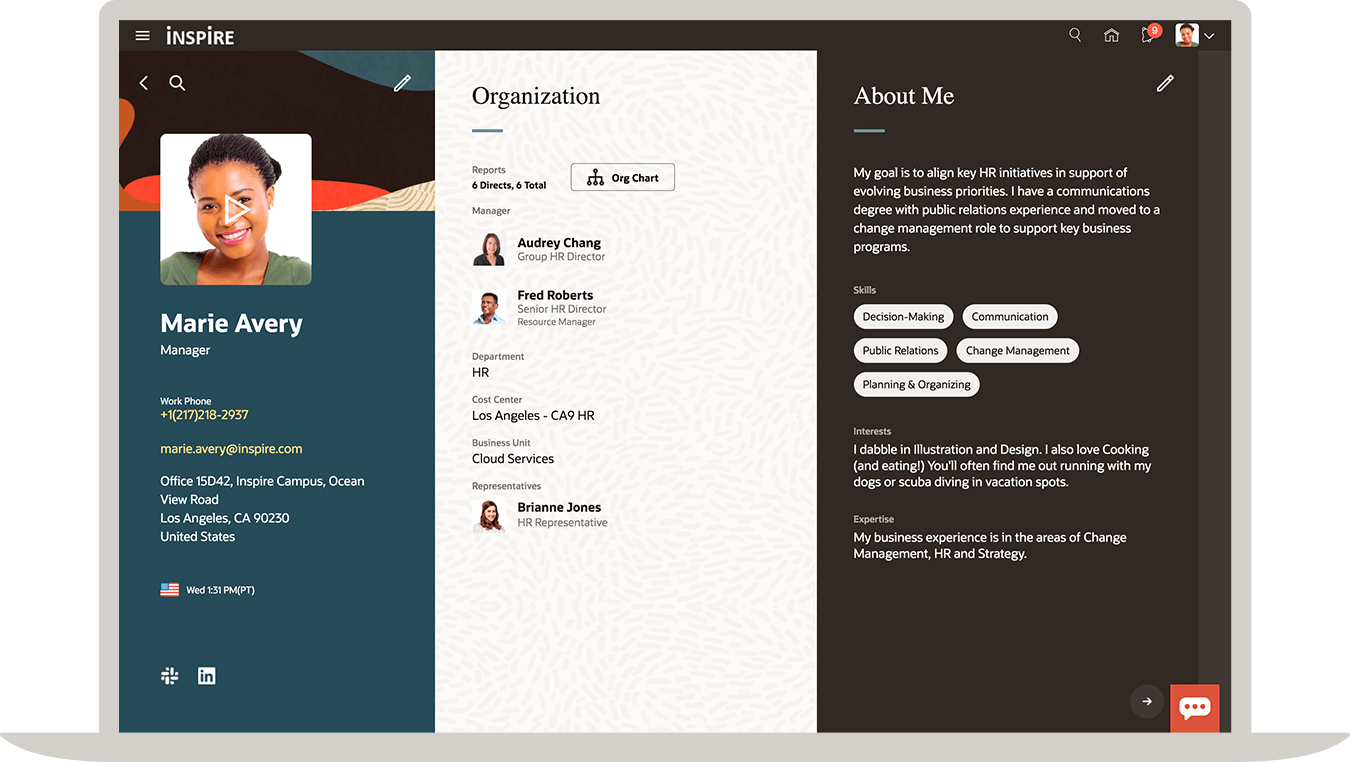Almost 16 years ago, Steve Jobs gave a commencement address at Stanford University so memorable that it’s been viewed over 36 million times on YouTube. Among Jobs’ advice was to find work that you genuinely love. “If you haven’t found it yet, keep looking,” Jobs urged the graduates, “and don’t settle.”
Today, faced with economic uncertainty and what sometimes feels like stagnant corporate career paths, is loving what you do still possible while building a successful career? To follow their passions, some workers turn to the gig economy for reasons ranging from flexible work arrangements to the ability to pursue fun and exciting projects.
But what if you could get the excitement and exploration that comes with a gig economy fling while keeping what you like about full-time work? (Like health insurance and a paycheck.) What if a direct marketing professional could spend three weeks partnering with colleagues planning a new virtual event series to help them get outreach right. What if a finance team leader could spend two weeks coaching the inside sales team on what factors make a customer most profitable, so they know which prospects to prioritize?
Gigs have become a part of the modern career journey, so companies have a powerful incentive to make this kind of gig-within-a-job energy a reality.
Nearly a quarter of gig workers said they chose gig work because it lets them pursue their passions, according to a study of working professionals by the insurer MetLife. With a growing acceptance of such work, it’s time for organizations to incorporate the gig model into their workforce strategy to provide a path for employees to pursue roles that can help them develop and grow and meet the business’s rapidly shifting needs.
Why Workers Gig
One significant attribute of gigs—the chance to work remotely—has already made its way into the workplace. Forty-nine percent of gig workers in the MetLife study said they left full-time work because they couldn’t work remotely. The pandemic changed all that, with 42 percent of the U.S. labor force now working from home full-time and many companies looking to make these arrangements permanent.
However, businesses and HR must also think far beyond simple remote work options and truly leverage gigs to let employees build critical skills and competencies as economic uncertainty continues through 2021.
With Oracle Opportunity Marketplace’s help, part of Oracle Cloud HCM, HR leaders can embrace gig work with their full-time employees.
One company in the services industry is leading the charge of incorporating gigs through Oracle Opportunity Marketplace. Before the COVID-19 pandemic, the company’s HR team used spreadsheets to match employees with the business areas that required resources. However, COVID-19 meant the business needed to be more flexible with how it deployed people to meet fast-changing business needs. Enter the Oracle Opportunity Marketplace, letting HR digitize the matching process and make open projects and roles widely available, letting employees look for new experiences and chances to broaden their network while helping the company.
Discover More Ways to Engage Your Workforce: Subscribe to Email Updates
Here’s how it works. If a manager needs to fill a position for an upcoming project but doesn’t have enough resources such as money or people, they create a gig for the position in the Marketplace. (See screenshot below) They can include what the gig duties entail, relevant skills, and career benefits gained by participating.

Next, any employee can view the gig and apply, including sharing their profile from Oracle Connections, which contains their bio, experience, skills, and recommendations. The manager can review all that before connecting with interested employees. Both parties benefit, with the manager getting access to an engaged teammate and the employee taking control of their career development.

According to the study by MetLife, the search for purpose at work isn’t going anywhere because 48% of gig workers said they work to gain a sense of fulfillment.
With limited resources and rapidly shifting business needs, it’s more important than ever for HR leaders to stop and reflect: Are you providing your employees the opportunity to develop their skills and explore their passions? Are you seizing a chance to take full advantage of the skills in your workforce? We’ve seen that it’s possible to offer a system of internal gigs that not only maximize your existing talent and benefit the business but also help you put your employees first.
Learn More
- Opportunity Marketplace – Top HR Product of the Year Winner
- Learn more about how Oracle Opportunity Marketplace can help you maximize skills and put employees first.
- Learn how Oracle is helping customers remain resilient in the new workplace.
Enjoyed reading this blog? Leave feedback for us.